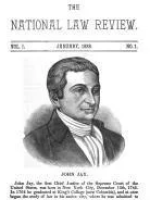Trenton Norris is a co-leader of Arnold & Porter’s Consumer Products & Retail Sector, and is one of the nation’s leading experts on California’s toxics and labeling law, Proposition 65. Ahead of the Prop. 65 Clearinghouse annual conference, where he will be speaking on a panel on First Amendment issues in California’s Prop 65 litigation, Mr. Norris was kind enough to take some time to answer the National Law Review’s questions on litigation trends in Prop 65.
Prop 65, or the Safe Drinking Water and Toxic Enforcement Act of 1986, was enacted as a ballot initiative in November 1986, and is associated with warnings for chemical exposures. Can you provide a summary or explanation of how a First Amendment challenge comes out of this landscape?
Because Prop 65 affects speech, it implicates the First Amendment. It is well-established that businesses have free speech rights and that compelling speech (in the form of mandated notices or warnings), just like prohibiting speech, must meet First Amendment standards. Businesses often believe Prop 65 warnings are misleading and they sometimes believe the warnings are untruthful. The Government can say what it wants, but there are limits on what it can force others to say.
There are two standards used to analyze First Amendment issues in commercial speech: Zauderer and Central Hudson-what are the differences between these two standards, and why is it important?
As generally understood, Central Hudson applies to restrictions on commercial speech, while Zauderer applies to compelled commercial speech.
Central Hudson says the Government can restrict commercial speech so long as its asserted interest is substantial, the restriction directly advances that interest, and the restriction is no more extensive than necessary to serve that interest. Zauderer arguably sets a lower bar: the Government can compel speech in the form of a warning or disclosure so long as it is purely factual and uncontroversial and the requirements are not unjustified or unduly burdensome. A more recent U.S. Supreme Court decision, NIFLA v. Becerra, also makes clear that disclosures cannot be required to remedy a harm that is purely hypothetical.
There is a general concern surrounding Prop 65 litigation that it is almost too easy for private enforcers to bring Proposition 65 enforcement suits. In your opinion, how does this concern impact the issues of false and deceptive statements brought up by the plaintiffs in both National Association of Wheat Growers et al. v. Becerra and CalChamber v. Becerra?
A unique feature of Prop 65 is that, contrary to centuries of Anglo-American law, the accused business bears the burden of proving its innocence. A Prop 65 enforcer need only detect the chemical, at even a minute level, and hypothesize a plausible route of exposure, and then the burden shifts to the business to prove that the amount of chemical to which it exposes Californians is below the uncertain level permitted by the statute. If it cannot do that, the business must provide a warning (and pay civil penalties).
This is inconsistent with the First Amendment. First, the Government bears the burden of showing that a compelled statement meets First Amendment standards. Second, the Government cannot establish a vague standard and expect businesses to prove in court that they comply. The Riley Supreme Court decision makes it clear that that sort of regime is unconstitutional because it uses the vagaries of litigation to chill protected speech -- exactly what we see with the settlement machine that is Prop 65.
Now, Wheat Growers and CalChamber arise in different contexts. In Wheat Growers, the challenge was brought before warnings were required for the chemical (glyphosate), so there were no enforcement actions and the plaintiffs wanted to prevent an anticipated onslaught of such lawsuits once the warnings were required. (They have succeeded in the trial court.) In CalChamber, there were already hundreds of private enforcement actions in which millions of dollars have been paid in settlement, because the chemical (acrylamide) was listed over 30 years ago and discovered in much of the food supply in 2002.
What, in your opinion, are the main takeaways for stakeholders in National Association of Wheat Growers et al. v. Becerra decision? Could this open the door to more First Amendment arguments when the scientific evidence surrounding a chemical’s carcinogenic nature is disputed? Wheat Growers is cited in the CalChamber First Amendment Complaint, for example.
The District Court in Wheat Growers makes clear that standard First Amendment doctrine applies to Prop 65 warnings. This doesn’t mean all Prop 65 warnings violate the First Amendment; just that the warning may not be justified in the context of a given chemical or product based on the knowledge of the State, the uncertainty in the science, or the hypothetical nature of the risk at issue.
In Wheat Growers we have the extreme situation where virtually every scientific and regulatory body in the world, save one, agrees that glyphosate does not cause cancer, but the decision of the one outlier IARC (the International Agency for Research on Cancer) automatically put the chemical on the Prop 65 list. In CalChamber, by contrast, no one is arguing that acrylamide is not carcinogenic to laboratory rodents; instead, we are arguing that there is no evidence it causes cancer in humans when consumed in the ordinary diet, and indeed all the evidence is to the contrary. Future cases challenging Prop 65 warnings under the First Amendment will depend on the science and facts that apply to those chemicals and exposures.
The IARC International Agency for Research on Cancer determined that glyphosate is “probably carcinogenic” in humans, triggering the Prop 65 Warning requirements--but other authoritative agencies disagreed--including the EPA, the EC (European Commission )and the WHO (the World Health Organization). Additionally, in CalChamber v. Becerra, acrylamide in food is at issue, and CalChamber contends that the science does not support the claim that acrylamide is carcinogenic in humans. When contradictory evidence and conclusions are reached, how are they harmonized? Is it up to the OEHHA (California Office of Environmental Health Hazard Assessment) to weigh the evidence from various agencies and make a determination? Does any guidance exist on how the state agency should analyze conflicting scientific evidence?
There is almost always a degree of scientific uncertainty. Policy makers like OEHHA have to struggle with this all the time and make decisions guided by the law and their policy goals. Some regimes -- particularly in Europe -- are based on the “precautionary principle” in which restrictions are considered better than taking almost any risk. Others -- particularly at the federal level in the US -- require a cost-benefit analysis and careful review of uncertainty. Prop 65 is as close as any US law comes to implementing the precautionary principle.
When a policy does not implicate speech, policymakers are not constrained by the First Amendment’s requirements for greater certainty. So, the First Amendment would not prohibit California from, say, banning all food containing acrylamide above some level. (Other laws might, of course.) But where speech is implicated, as in Prop 65, the Government bears the burden of showing that the compelled speech is truthful, not misleading, purely factual and non-controversial, and not unjustified or unduly burdensome. And the policy basis for that rule is clear: how could we have debate over scientific issues -- which is the single path to greater certainty and greater knowledge -- if the Government can force speech that it favors and thereby discourage questioning and inquiry while drowning out other views?
Mr. Norris will be speaking at the Prop. 65 Annual Conference on September 21, 2020. This event, which will be virtual this year, is the only Prop 65 focused conference where stakeholders can discuss regulatory issues, litigation, and other Prop 65 concerns. Learn more and register for the Prop 65 Annual Conference.




 />i
/>i

